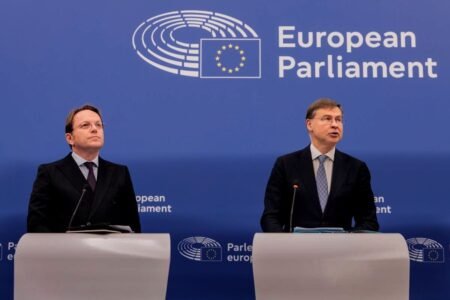The current Ebola outbreak affecting the West Africa region is the worst such outbreak on record. The World Health Organisation (WHO) has declared it a Public Health Emergency of International Concern, calling for a coordinated international response. As of 10 October, there have been more than 8399 reported cases, including 4033 deaths from the disease (Source: WHO). To date, 10 patients have been repatriated to the EU/EEA with confirmed or suspected Ebola and the first secondary case of Ebola in Europe has been confirmed on 6 October.
Advertisement
What is Ebola?
Ebola virus disease (EVD) is a severe, often fatal illness. EVD outbreaks occur primarily in remote villages in Central and West Africa, near tropical rainforests but in the current outbreak the disease has also spread to urban places. Some Ebola outbreaks have a fatality rate of up to 90%. In the current outbreak EVD is fatal in 45-70 % (average 60 %) of the people who fall ill.
What are the symptoms?
Symptoms appear between two and 21 days following exposure to the virus, with the majority of patients developing them within one week. The first symptoms are, most commonly, a sudden fever, muscle aches, weakness, headache and a sore throat. As the virus develops, additional symptoms typically include vomiting, diarrhoea, rash and malfunction of the liver and kidneys. Some patients also have profuse internal and external bleeding and multi-organ failure.
How is Ebola transmitted?
Ebola is transmitted through direct contact with blood or other bodily fluids (e.g. saliva, urine, secretions, semen, stool, breast milk and organs) from infected people, dead or alive. It can also be transmitted via unprotected sexual contact Humans can also catch the disease from direct contact with blood and other bodily fluids and organs from wild animals, dead or alive, such as monkeys, forest antelopes and bats.
However, Ebola is not transmitted by air and individuals do not transmit the virus before showing symptoms. Neither is there evidence that mosquitoes transmit the virus.
What is the risk for European health workers in the affected areas? What help can they expect from the EU?
Ebola poses the greatest risk to the European citizens who are currently present in the affected countries, most notably to the health staff and volunteers helping to stop the spread of Ebola. In their case the European Commission, upon discussion in the European Health Security Committee (HSC), has agreed on the crucial importance of reliable systems of medical evacuation for humanitarian staff and medical workers in the affected countries to maintain an effective international response on the ground.
Accordingly, the Commission launched work to develop a European mechanism for medical evacuations. The European Commission’s Emergency Response Coordination Centre (ERCC) facilitates the transport of relief items to West Africa and will, if necessary, fund and coordinate the evacuation of international staff from Liberia, Guinea and Sierra Leone.
Is the repatriation of Ebola patients a public health risk for the EU?
The first secondary case of Ebola in Europe was confirmed on 6 October 2014. The patient is a nurse who took care of an Ebola patient who had been repatriated to Spain for medical care after contracting the virus in Liberia, and subsequently died. This case demonstrates that bringing Ebola patients to the EU for treatment is not absolutely risk free. However, the risk of Ebola viruses spreading from an EVD patient who arrives in the EU as result of a planned medical evacuation is considered low by the European Centre for Diseases Prevention and Control.
Should there be obligatory screening tests for Ebola in European airports?
The possibility of a traveller with Ebola returning to the EU before becoming sick or while sick remains low, but cannot be excluded.
Exit screening is already in place in airports in the affected countries. Discussions are on-going on whether there is an added value in screening incoming travellers at EU borders. This issue is being discussed within the HSC with a view to exchanging information, ensuring that any national measures are complementary and co-ordinated.. In the meantime, one Member State has introduced entry screening.
The Commission is also organising a high level co-ordination meeting in Brussels on 16 October 2014 focusing on entry screening.
Is the EU prepared for more Ebola cases in Europe?
The Commission has been working on preparedness and coordination of risk management together with Member States and with the support of the European Centre for Disease Prevention and Control (ECDC) and the World Health Organisation since the outbreak began. The EU Health Security Committee (HSC), established under the Decision of the European Parliament and of the Council on serious cross border threats to health is coordinating the exchange of information and coordination of preparedness, in response to Ebola in the EU.
So far, during the outbreak, the HSC has:
- activated networks for secure hospital facilities
- activated networks for high security laboratories to ensure all Member States can access such laboratories to diagnose EVD;
- endorsed information for travellers which is published in all EU languages;
- approved key media messages, which have been translated into all EU languages;
- undertaken work on procedures for airports and health authorities on handling possible cases of Ebola identified during a flight and on preparedness of health systems for treating Ebola cases; and
- endorsed a case definition allowing for identification of Ebola cases in the EU.
How well are individual EU countries equipped to treat a patient with Ebola?
According to the analysis by ECDC of the information provided by national authorities, most Member States seem to be well prepared. The most challenging issues concern the evacuation from affected countries and treatment in the affected countries.
There are potentially further challenges for some Member States in access to treatment facilities, transport of patients, availability of laboratories, expertise and resources. In the spirit of solidarity, the HSC is coordinating the sharing of certain key resources which Member States have offered to put at the disposal of other countries if required. These include offers of support on medical evacuation, treatment and diagnostic facilities.
Could Ebola reach the same proportions in Europe as in West Africa?
This would be highly unlikely, firstly, because of the specific conditions for transmission of the Ebola virus as described above, i.e. direct contact with a symptomatic patient’s bodily fluids. Furthermore, it is important to consider that the EU has very high standards of healthcare and preventive care.
Is there a medicine or a vaccine for Ebola?
There is currently no authorised or proven treatment for Ebola. The WHO, together with regulatory partners, are urgently working to identify potential viable candidate treatments, as early supportive treatment is an important factor for the clinical outcome.
The European Medicines Agency stands ready to cooperate with the Commission and Member States to facilitate the availability of any treatment, either together with the WHO for use outside of the EU (so-called Article 58 procedure), or use within the EU through compassionate use or accelerated review procedures (with rapid pre-qualification from WHO).
On the research front, the Commission intends to quickly mobilise funds from Horizon 2020 via an emergency procedure to support clinical trials on candidate vaccines and therapies. The details are under discussion with the World Health Organisation and the European Medicines Agency in order to define the most appropriate research actions that could add value.
On 26 September 2014, the European Medicines Agency started to review available information on Ebola treatments currently under development. The goal is to provide an overview of the current state of knowledge about the various experimental medicines to support decision-making by health authorities.
Where can I find updates on the latest developments?
Updated figures on reported Ebola cases and deaths can be found on the WHO website.
All latest documents, including the latest ECDC risk assessment, traveller’s advice leaflet, summaries of HSC meetings, and Member State-specific links and information, can be found on the Commission’s website







